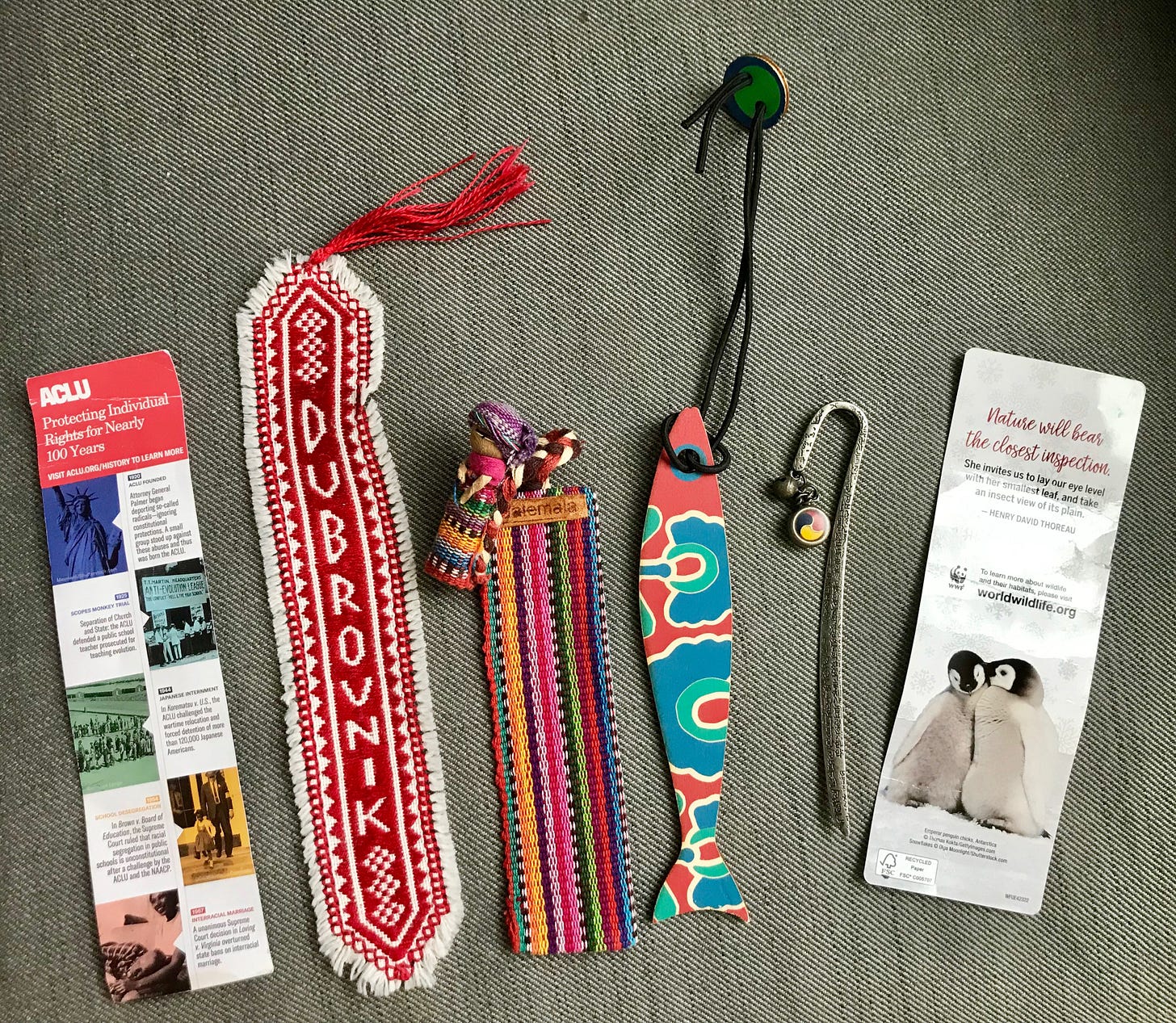Immigrant Strong: July Issue
Bosnian's take on fascism, being a queer Iranian, and TV as translator
My pandemic and no-child-care-since-March brain is still not able to summon enough energy and mental strength for reading books. I hope to use these bookmarks again soon, but in the meantime, here are some essays I’ve enjoyed recently. They come from writers with connections to China, India, Iran, Japan, and Yugoslavia.

Essays
Vesna Maric and I share the same first name and Yugoslav roots, so it’s not surprising I agreed with so many of her points in this Granta essay, The Fascist Within. She does a great job of reflecting on her childhood in Bosnia while exploring critical topics such as racism, capitalism, systematic oppression, and the West’s flawed views of democracy. It’s a thoughtful piece that weaves together a personal narrative with timely facts and research. And it shows us how writing by immigrants and refugees offers a much-needed lens and context for analyzing current topics.
“Remembering, reminiscing, conjuring up, reviving is also what we, the former Yugoslavs, do; our lives, as we knew them, were yanked away from us in such a swift, violent way, we are left to turn up the soil of our memory, hoping to make some sense of ourselves through what we find.”
If you like Maric’s work, I suggest another one of her recent Granta essays — War and Virus.
“During one of the many phone calls I have had while in quarantine, someone said, ‘This is how they live in Palestine; this is what being in Syria feels like;’ – and I found myself facing the familiar wall of the privileged Western (un)consciousness that has not experienced extreme life circumstances since World War Two.”
Here is an excellent essay on anti-Asian racism, The Virus, by Beverly Tan Murray for the Rumpus. It discusses issues such as the model minority myth, white supremacy, and how Black activists paved the way for many immigrants.
“My inner sixteen-year-old immigrant—the girl with the too-formal shoes, the off-brand clothing, the unplaceable accent—is back, this time with strange and terrifying powers. As a teen, I once harbored dreams of fame and adoration. Now, I’d give anything to be able to blend in.”
I look forward to reading Porochista Khakpour’s Brown Album; here is an excerpt in LitHub, Travels with Barbie, From Tehran to Paris to New York, to give you a taste of the new essay collection, which is her fourth book.
“I even attempted to “tan” Peaches ’n Cream Barbie’s skin for hours one day, praying for her lotion-slathered skin to turn brown like mine, which it never did. I realized then that the one thing worse than being a foreigner was being a foreigner who was a girl.”
Here is a nice New York Times read from LiAnne Yu, TV Was My Family’s Universal Translator, on what television shows did for her Chinese immigrant family. (TV helped me learn English—I watched reruns of Full House as a teenager and imitated their accents.)
“We just needed a way to convey the things we couldn’t express directly because of language, cultural or generational differences. The TV became our universal translator.”
I enjoyed this Catapult essay by Arya Roshanian, Ballet Helped Me Reclaim My Identity as a Queer Iranian.
“Like most queer people, I knew early on that I was different from my peers. I was effeminate by societal standards, and also one of the only Middle Eastern kids in my class. I often felt like the crusts of Wonder bread: brown at the periphery of white, usually discarded.”
And here is another Catapult piece from an Iranian writer, What I Carry in My Bag of American Dreams, by Maryam Sefati.
“This guilt sucks the life from us. It bullies us, calling us cowards for not staying where we were born and raised, for not fighting to make it better, for not working to protect it. We left, and that leaving made us into orphans, wandering the streets, confused.”
I love learning about other immigrants’ childhoods and this lovely read by Karen Tei Yamashita takes me from neighborhood to neighborhood. Here is Growing Up Sansei in LA in Guernica.
“Maybe she missed the old bubble, but I always wanted out. There was a world out there, and it wasn’t all JA. Now I think back, admittedly with some nostalgia and regret, recognizing our particular privilege. I miss my folks and their nisei generation. I miss the positive innocence of those days and their hopefulness for our future.”
Jaswinder Bolina writes about his identity, family, racism, and immigrants turning against immigrants in American, Indian for the Paris Review.
“And so, like every other child born of brown immigrants, first-generation or fifth-, my difference keeps me detached and at a distance. My skin makes me an Indian.”
Thanks for reading,
Vesna
About this newsletter: Writing about immigrant and refugee life—the struggles, triumphs and quirks—by immigrants and refugees, and children of immigrants and refugees. Photo in the logo: Miguel Bruna/Unsplash.
About me: I grew up in the former Yugoslavia, then moved to Canada, and now live in the United States, where I work as a writer and communications consultant for nonprofits focusing on human rights. I have written about my immigrant experience for The New York Times, Catapult, the Washington Post and the New York Daily News. Find me on twitter, @vesnajaksic, or on my website, www.vesnajaksic.com.



